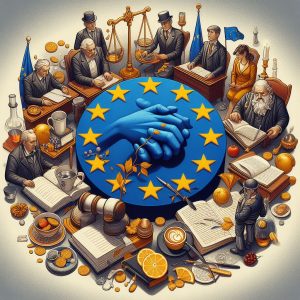 The European Parliament made a significant move toward greater integrity and transparency within the EU. On Thursday, it approved the establishment of a new Ethics Body. This collaborative effort involves multiple EU institutions including the Council, the Commission, the Court of Justice, the European Central Bank, and others.
The European Parliament made a significant move toward greater integrity and transparency within the EU. On Thursday, it approved the establishment of a new Ethics Body. This collaborative effort involves multiple EU institutions including the Council, the Commission, the Court of Justice, the European Central Bank, and others.
In the shadow of the Qatargate corruption scandal the new body will be responsible for setting and enforcing ethical standards across participating institutions. To bolster its effectiveness, it will include five independent experts to review standardised declarations, which may include declarations of interest, and investigate individual cases. Put in practice it e.g. means actively and independent monitoring that the lobbying rules are followed.
Parliament’s Key Role for an Ethics body
The European Parliament played a crucial role in shaping the agreement and was at the forefront of pushing for expanded powers for the new ethics body. Parliamentary representatives secured watchdog functions that were not initially proposed, marking a key victory in the negotiations.
Freund: “More Transparency, Greater Citizen Confidence”
“Without the tireless efforts of the European Parliament pushing for more transparency, we would not have come this far,” said rapporteur Daniel Freund (Greens/EFA, DE). “The fact that the new body can also deal specifically with individual cases is an enormous negotiating success. Today, we are creating more transparency, laying the foundation for greater citizen confidence in European democracy.”
Next Steps and Ongoing Efforts
Before becoming operational, the agreement must receive signatures from all participating institutions. There’s a commitment to reviewing the body’s effectiveness after three years. The European Parliament stresses that this is an initial, but important step. They plan to continue developing the body to give it full investigative powers and the ability to issue sanctions in the future.

